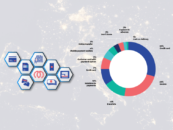
Rise of Digital Nomads Introduces Identify Verification Challenges to Banks and Fintech Companies
by Fintechnews Switzerland June 9, 2023The rise of remote work is forcing adjustments within businesses and introducing new challenges. For finance and technology businesses, the number of foreign document verification cases has increased considerably throughout the years, a development which organizations are struggling to deal with.
A new research initiated by Regula, a provider of identity verification solutions and forensic devices, found that businesses in the banking and fintech sectors are ill-equipped to address these market changes with many still relying to manual checks when performing identity verification.
The findings, shared in a report titled The State of Identity Verification in 2023, draws on primary research and a survey of 1,069 decision-makers in the banking, fintech, technology, telecoms, and aviation sectors, to understand how businesses around the world are working with identity authentication.
Results show that the banking and fintech sectors have been particularly impacted by the rise of digital nomads, with 85% and 80% of respondents, respectively, witnessing an increase in the number of document verification cases involving foreign nationals during 2022.
For 62% of respondents in the banking sector and 61% in fintech, the number of foreign document verification cases grew by more than 25%.
Alarmingly, the majority of banking and fintech companies (62%) reported handling foreign document verification cases manually, raising concerns over efficiency and accuracy. Business representatives also noted the problem of incomplete databases of document templates (47% in banking and fintech, respectively), further putting their organizations at risk of fraud.
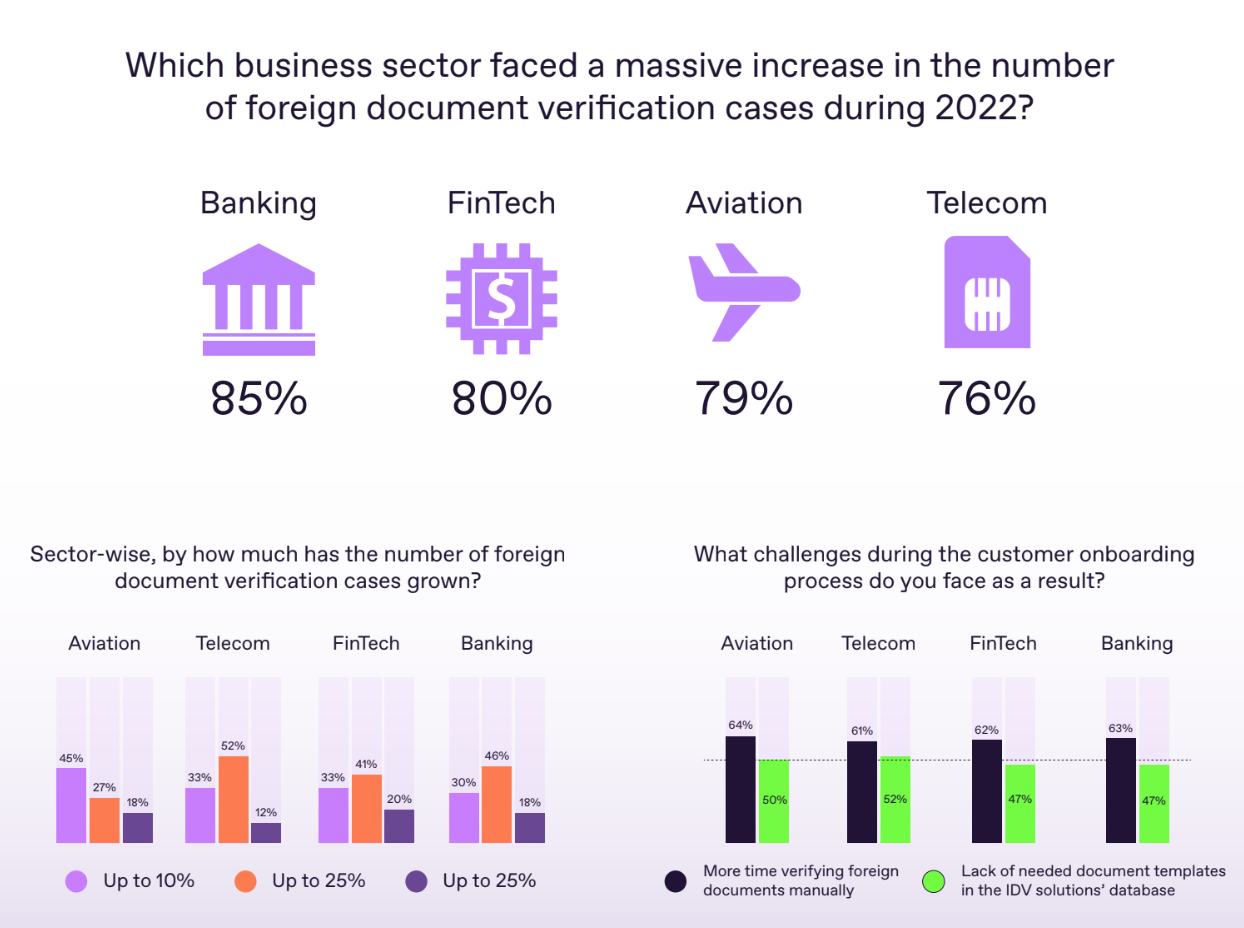
Business sectors facing a massive increase in the number of foreign document verification cases in 2022, Source: The State of Identity Verification 2023, Regula
Identify fraud has become a major problem for financial institutions worldwide. Findings from the Regula survey show that 26% of the banks polled reported over 100 identity fraud incidents in the past year.
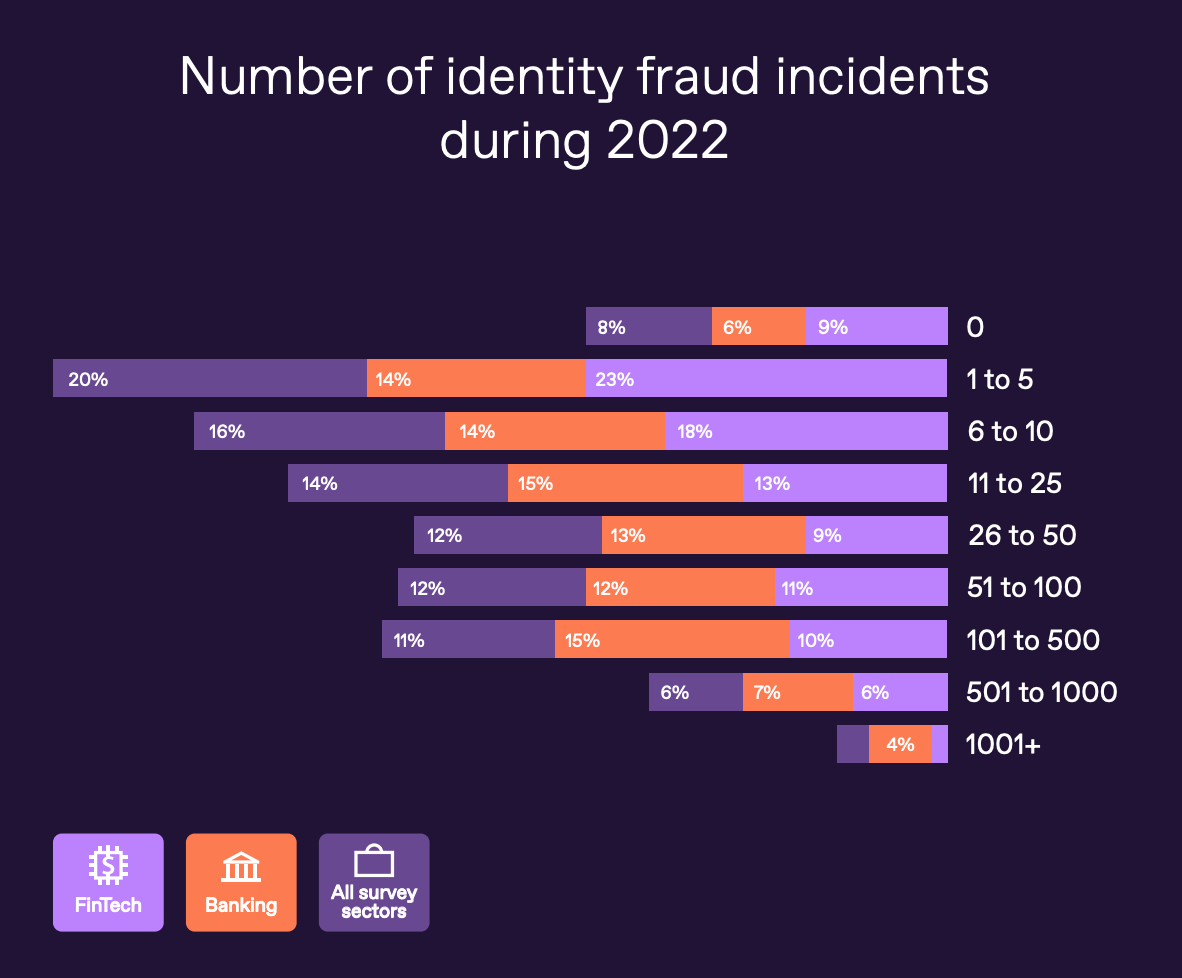
Number of identity fraud incidents during 2022, Source: The State of Identity Verification 2023, Regula
For 31% of these respondents, the incidents cost them on average US$479,000 or more, stemming from business disruptions (44%), penalties and fines (36%), and legal expenses (36%).
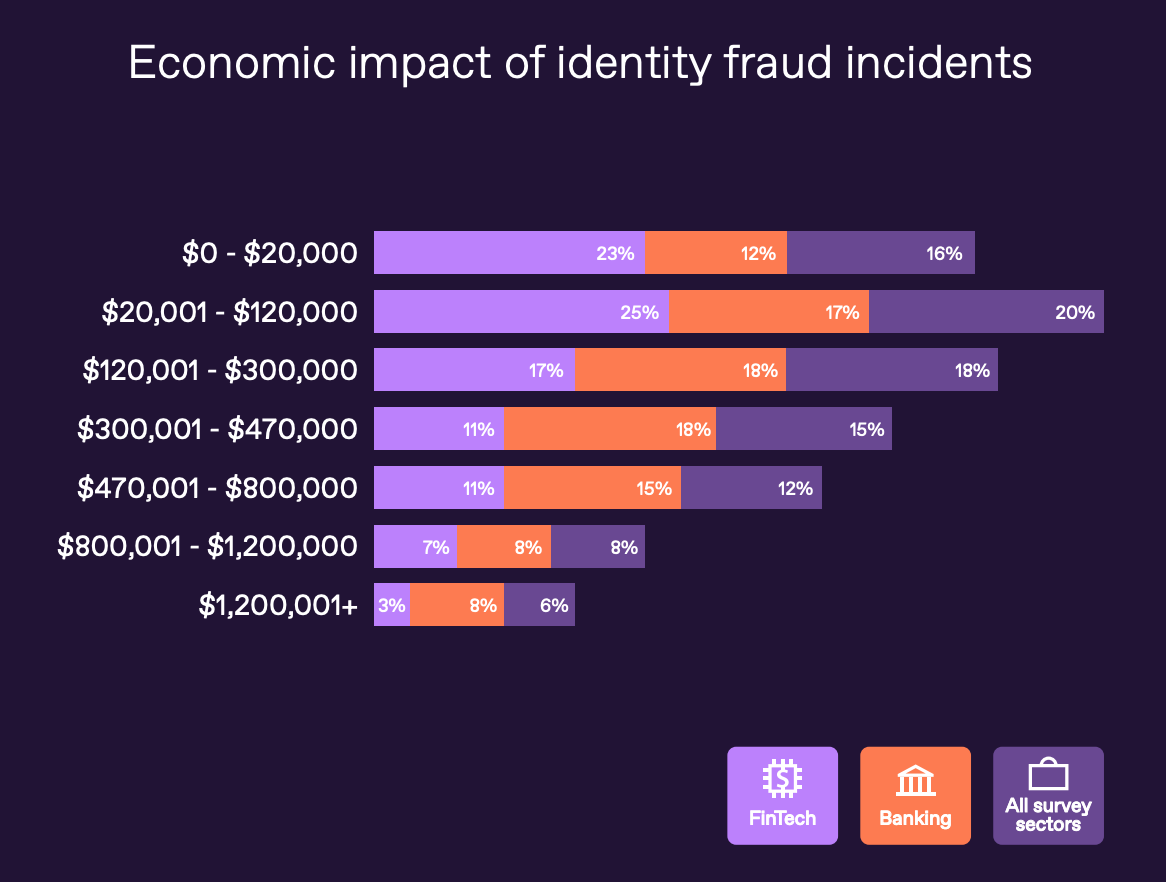
Economic impact of identity fraud incidents, Source: The State of Identity Verification 2023, Regula
Last year, the most prevalent form of fraudulent activity experienced by organizations in all surveyed sectors was the use of fake or modified physical documents. Nearly half of fintech companies (46%) and 54% of banks reported being affected.
But newer and more sophisticated techniques are also gaining prominence. 37% of all businesses reported having experienced deepfake voice fraud, a type of fraud that involves the use of artificial intelligence (AI) to create realistic imitations of a person’s voice that can be used to conduct fraud or dupe a person into giving up crucial information.
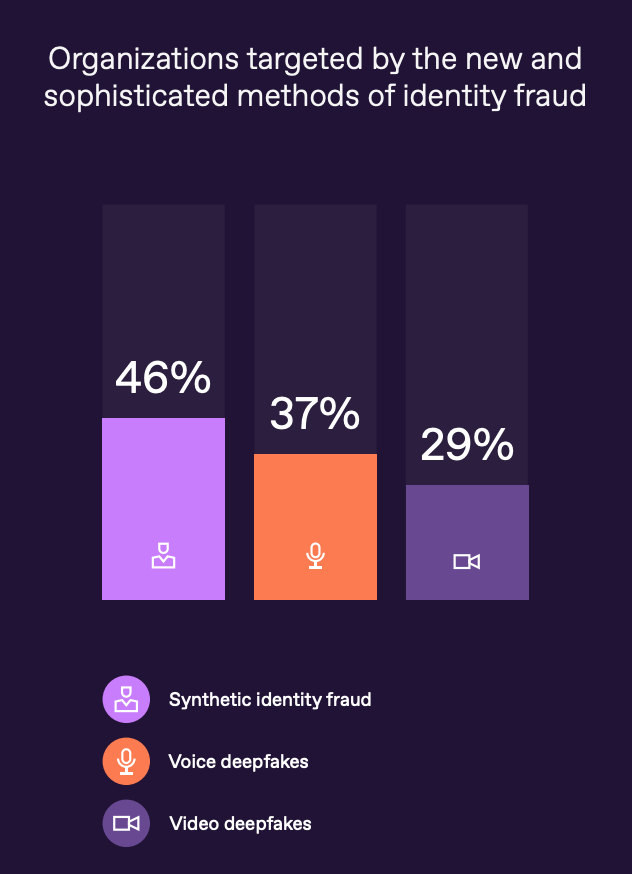
Organizations targeted by new and sophisticated methods of identity fraud, Source: The State of Identity Verification 2023, Regula
The higher volume and greater sophistication of fraud is prompting businesses in all sectors to ramp up investment in technology and digital solutions. Of the 1,000+ organizations polled in December 2022 and January 2023 for the Regula report, 91% said they intended to increase their spendings on identity verification solutions in the next one to three years. 41% of these companies said they planned to increase their spendings by at least 30%.
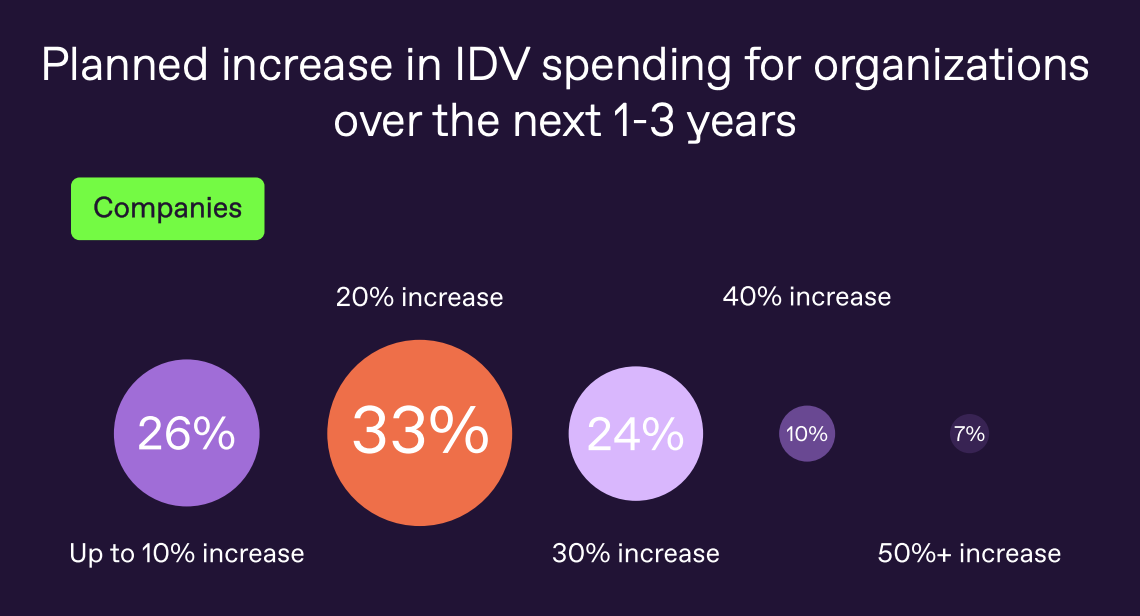
Planned increase in identity verification solution spending for organizations over the next one to three years, Source: The State of Identity Verification 2023, Regula
The COVID-19 pandemic has led to an increase in digital nomads worldwide and blurred the traditional borders between work, leisure, home and travel.
The 2022 State of Independence research study by MBO Partners, a provider of technology solutions and personal services to independent professionals and microbusiness owners, found that 16.9 million American workers described themselves as digital nomads last year, up 9% from 2021 and by a staggering 131% from the pre-pandemic year 2019.
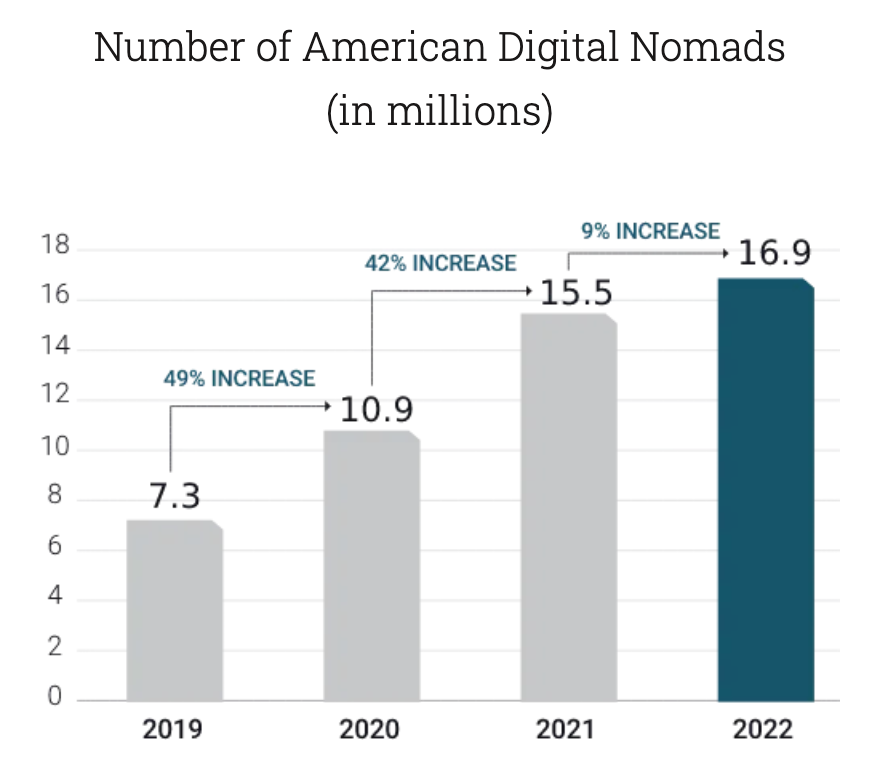
Number of American digital nomads (in millions), Source: 2022 State of Independence, MBO Partners
With the digital nomad lifestyle becoming increasingly popular, countries around the world are racing to set up special visa programs for remote workers and digital entrepreneurs, seeking to lure these professionals into their foreign income domestically.
Since Estonia introduced the world’s first digital nomad visa program back in 2020, it’s estimated that over 50 locations have followed suit, including Dubai, Hungary and Costa Rica.



